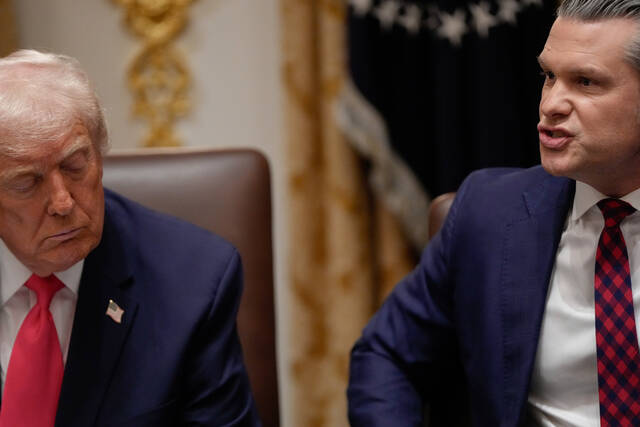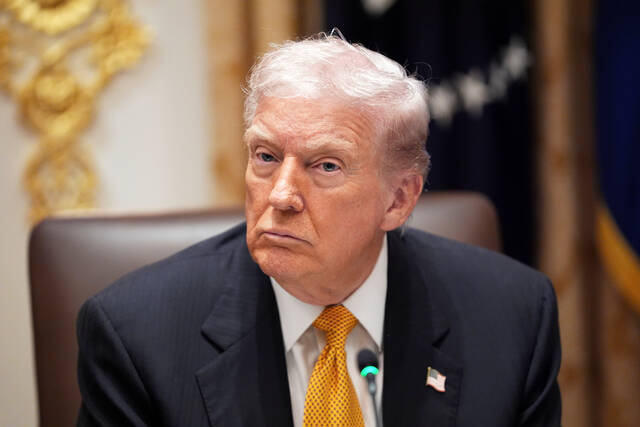When it was disclosed that Ginni Thomas, wife of Justice Clarence Thomas, had been communicating with Trump White House officials and advising them to overturn the lawful election of Joe Biden in the run-up to the Jan. 6 insurrection, the Supreme Court’s impartiality took another hit.
Ginni Thomas is not the problem. Her opinions and actions are her own. There are no restrictions on spouses of officials and judges, and there never should be. But whether it seems fair or not, her behavior and associations can restrict her husband’s actions on the court and limit the cases that he should hear.
That’s why an earlier vote by Thomas suddenly made news. When the court decided that the Trump White House had to turn over records to the House of Representatives committee that is investigating the insurrection, Thomas cast the only pro-Trump dissenting vote.
And considering his wife’s involvement with Trump and “Stop the Steal” — complicated by her later admission that she was at the Capitol on Jan. 6 — there are now demands that Thomas resign or be impeached for not disqualifying himself because of an apparent conflict of interest.
The first federal judicial qualification statute was adopted in 1792, and the most recent version was adopted by Congress in 1974. It says that federal judges and Supreme Court justices should disqualify themselves “in any proceeding in which their impartiality might reasonably be questioned.” And for all judges other than Supreme Court justices, these personal decisions on disqualification can be appealed.
It had already been a tough year for the Supreme Court before this. A September Gallup poll showed that only 40% of Americans approve of the job the court is doing, a 20-year low. And, despite the claims of by some justices that the court is not political, many Americans are finding that hard to believe.
Last September, Justice Amy Coney Barrett, the newest member of the court, told a University of Louisville crowd that justices must be “hyper vigilant to make sure they’re not letting personal biases creep into their decisions, since judges are people, too.”
And she insisted that the justices are “not political hacks” and that the court should be seen as nonpartisan. This was quickly questioned because she had been introduced at the event by Senate Republican Leader Mitch McConnell, who had pushed her confirmation through the Senate in a most partisan manner.
Some are calling on Chief Justice John Roberts to take action in light of the Thomas revelations, but he has no special powers here. Besides, Roberts has consistently said that matters of disqualification should be left to each judge.
Last year, in his annual report on the state of the court, Roberts wrote, “Public trust is essential, not incidental to our function. Individually, judges must be scrupulously attentive to both the letter and spirit of our rules.”
In these divisive political times, most folks just want a fair shake, and it is more important than ever that we continue to have neutral arbiters. Between winning and losing, winning is better, but losing is easier when you believe that you had a fair shot at winning. That’s why we all need to trust our courts.








